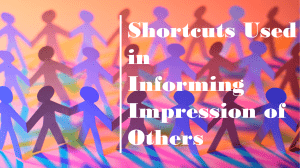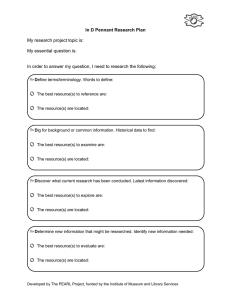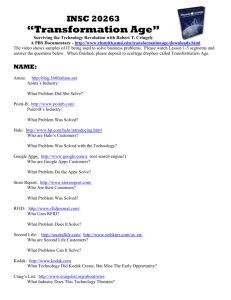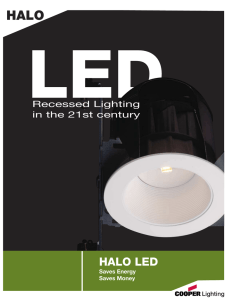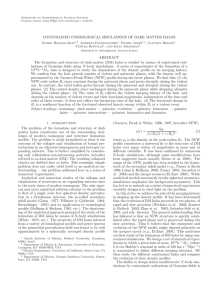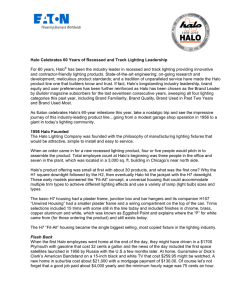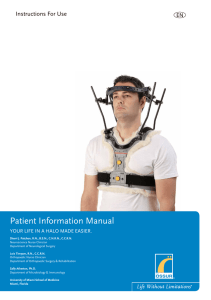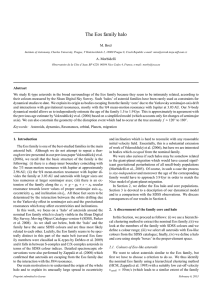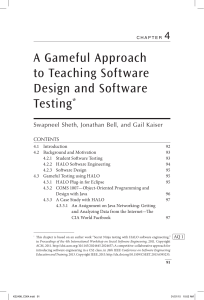How Families Impact a Child`s Brain Development
advertisement
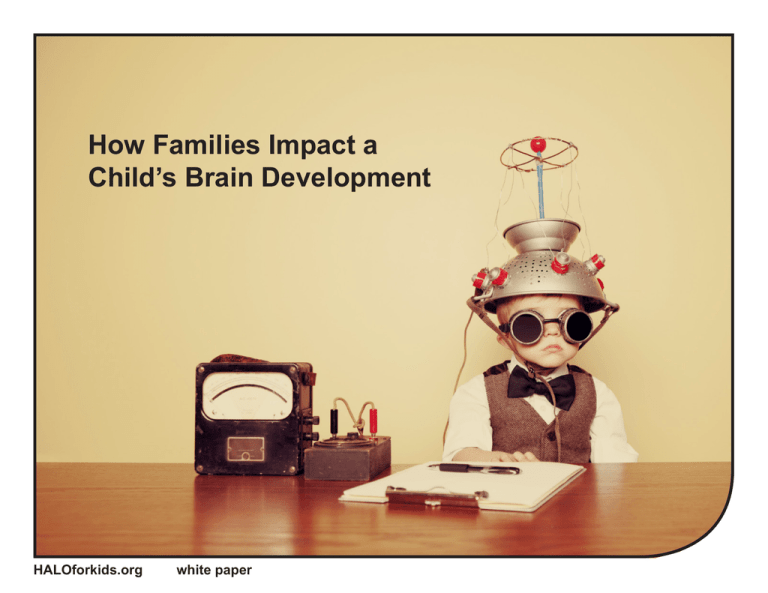
How Families Impact a Child’s Brain Development HALOforkids.org white paper A family is the first view of the world for a child. Two or more people joined together by love or people related to one another makes a family. Members of a family work, play, eat and learn together. Parents and caregivers are a child’s first and most important teachers. Did you know that children can build a strong sense of self from their family experiences? Through families children first learn about the concepts of love, caring, and relationships. Healthy Alternatives for Little One’s (HALO) unit three on “Families”, offers healthy prevention techniques with a focus on activities that enhance a child’s development of self-concept and strengthen their sense of self, while building peer relationships, healthy family relationships, and success in school. family HALOforkids.org Eight years and under is the most crucial time for childhood development. By the age of three, a child’s brain has reached about 90% of its adult size. The growth in each region of the brain largely depends on the stimulation it receives. How children develop and learn is determined by genetics, nutrition, surroundings, relationships, and experiences. The relationships children have in their daily environment, contributes to their brain development. brain development HALOforkids.org Neuroscientists call the brain a social organ. The brain is actually reshaped by our experiences. The internal states of others, from joy and playfulness to sadness and fear - directly affect our own state of mind and scientists call this “emotional contagion.” Studies have found that humans are biologically equipped to be in relationships, to understand where other people are coming from and to influence one another (Siegel & Bryson, 2011). HALO’s unit three “Families”, focuses on developing family relationships so children learn how they fit into their surroundings, interpreting others (facial expressions, nonverbal cues) and how to adjust and to participate in relationships by sharing, connecting, and trusting others. emotional contagion HALOforkids.org Children learn by example and what they see in their environment. Have you ever yawned after seeing someone else yawn? Neuroscientists discovered that familiar responses like these are caused by the mirror neurons activity in our brain. For example, when we see and act, the brain “figures out” what’s intended, we understand the purpose of the act, and we ready ourselves to mirror it (Siegel & Bryson 2011). Families play a big role in what children see and learn. Studies show that early exposure to nicotine, alcohol, and drugs have harmful and long lasting effects on young children. When children 3-6 year’s old learn HALO, they are equipped with ability and education to make healthy choices, gain self-awareness, strengthen social relationship skills and build their brain helping them in overall mindfulness for their future. mirror neurons HALOforkids.org In a HALO activity from unit three on “Families”, children learn they are unique and an important part of their family by making a “Family Pennant.” Each child cuts a pennant shape from construction paper. A “Family Connection” letter is sent home requesting the family participate in this activity. Then the child takes the pennant home and together with their family, decorates it with stickers, ribbons and family photos. Each child learns to identify the members of their family, see they are an important member of their family and they have a valuable and unique place in their family. When complete the child brings the pennant back to class to share with their classmates. family connection HALOforkids.org When family members share learning experiences with their child at home, they help provide the repetition needed for their child to fully understand and reinforce HALO messages. Through activates like this, HALO helps children build healthy relationships and teaches them an understanding of how they are connected to others, creating vital brain development at an early age. shared learning HALOforkids.org HALO Headquarters 2101 S. 42nd Street Omaha, NE 68105 877-533-3001 www.HALOforkids.org facebook.com/HALOforkids

